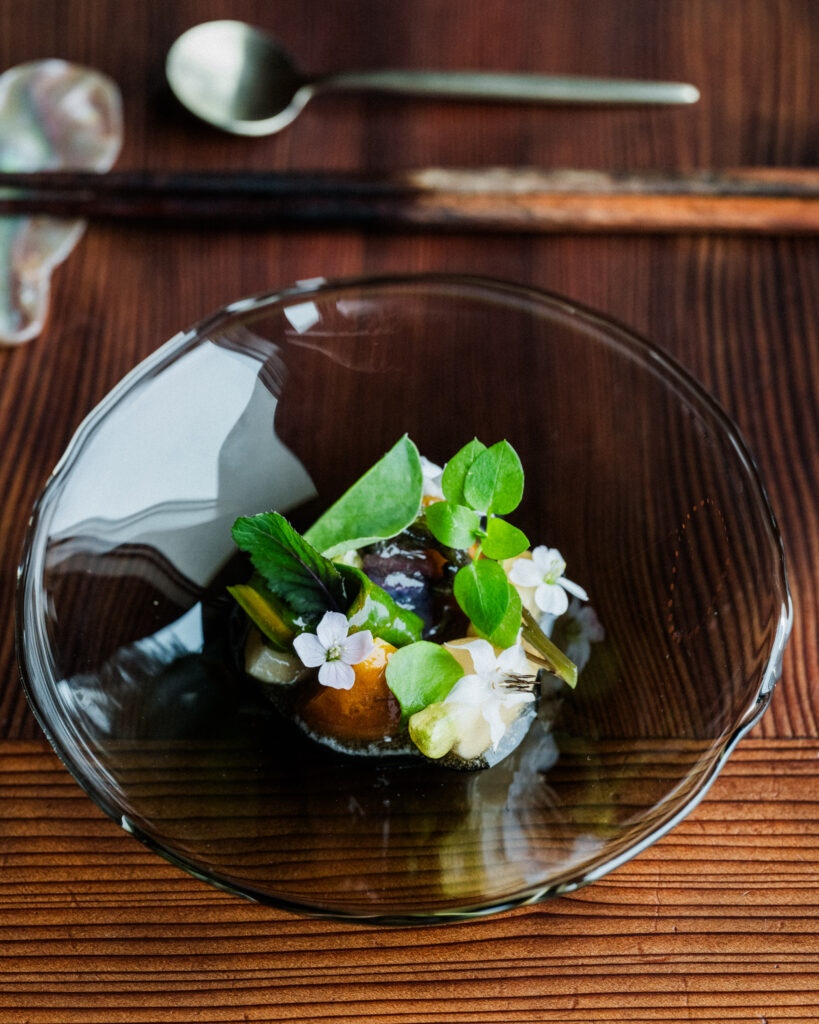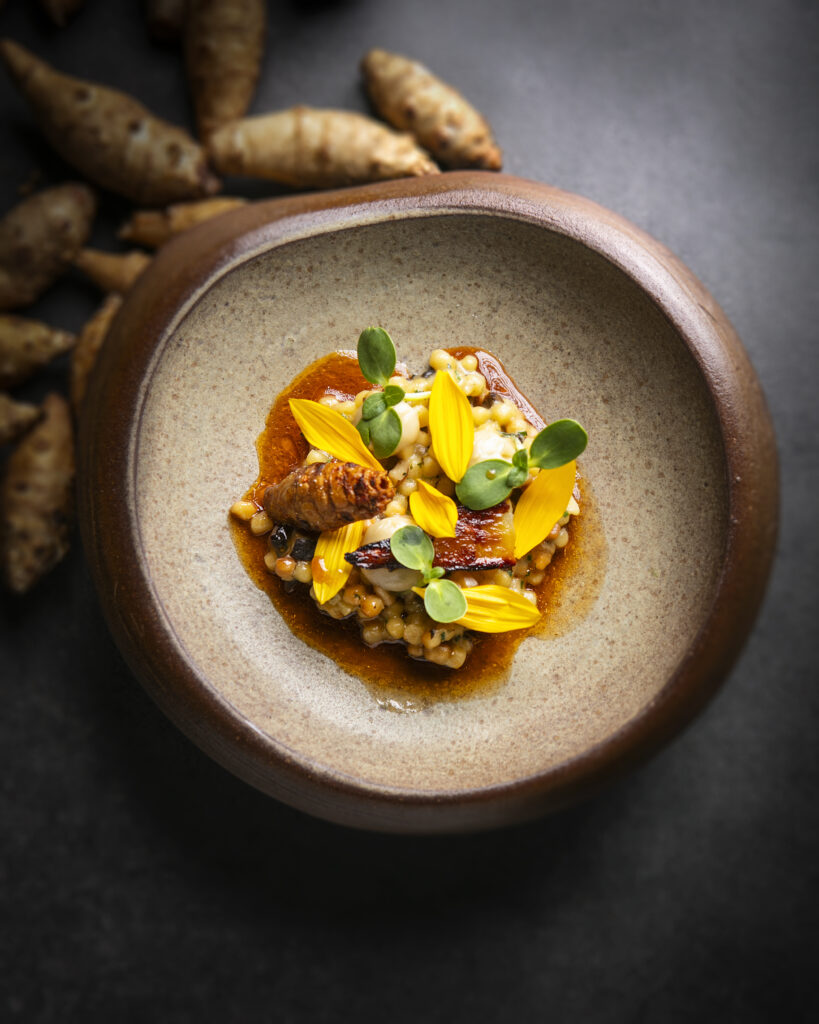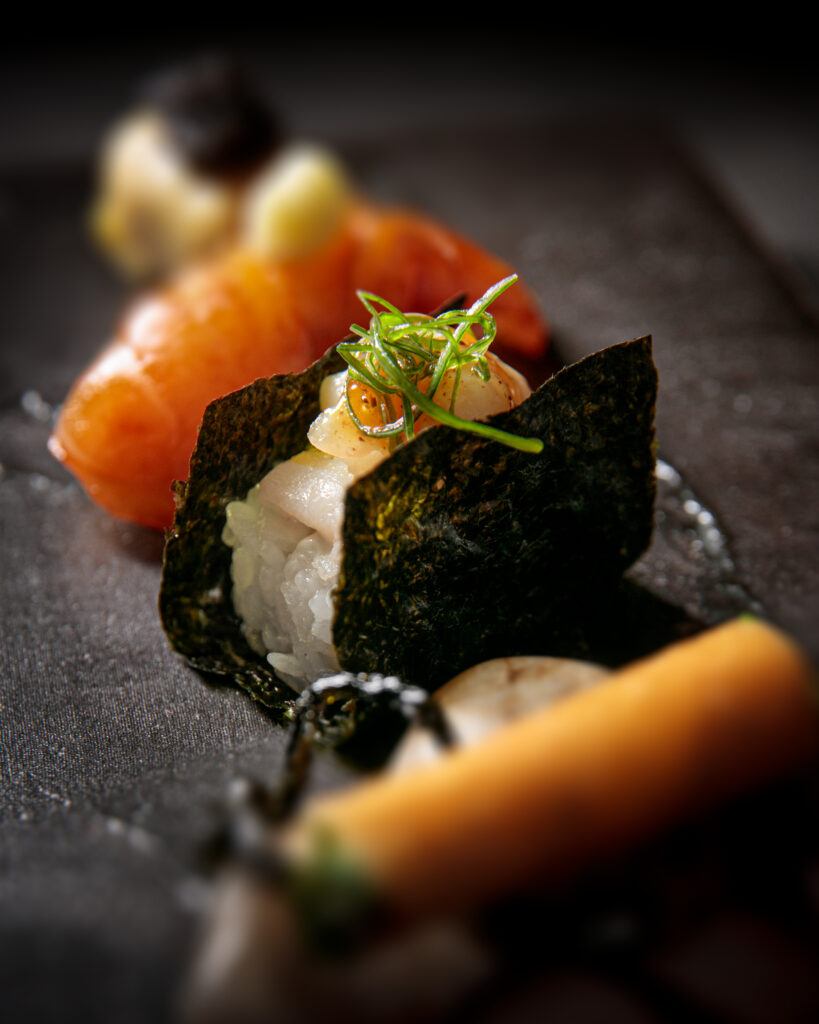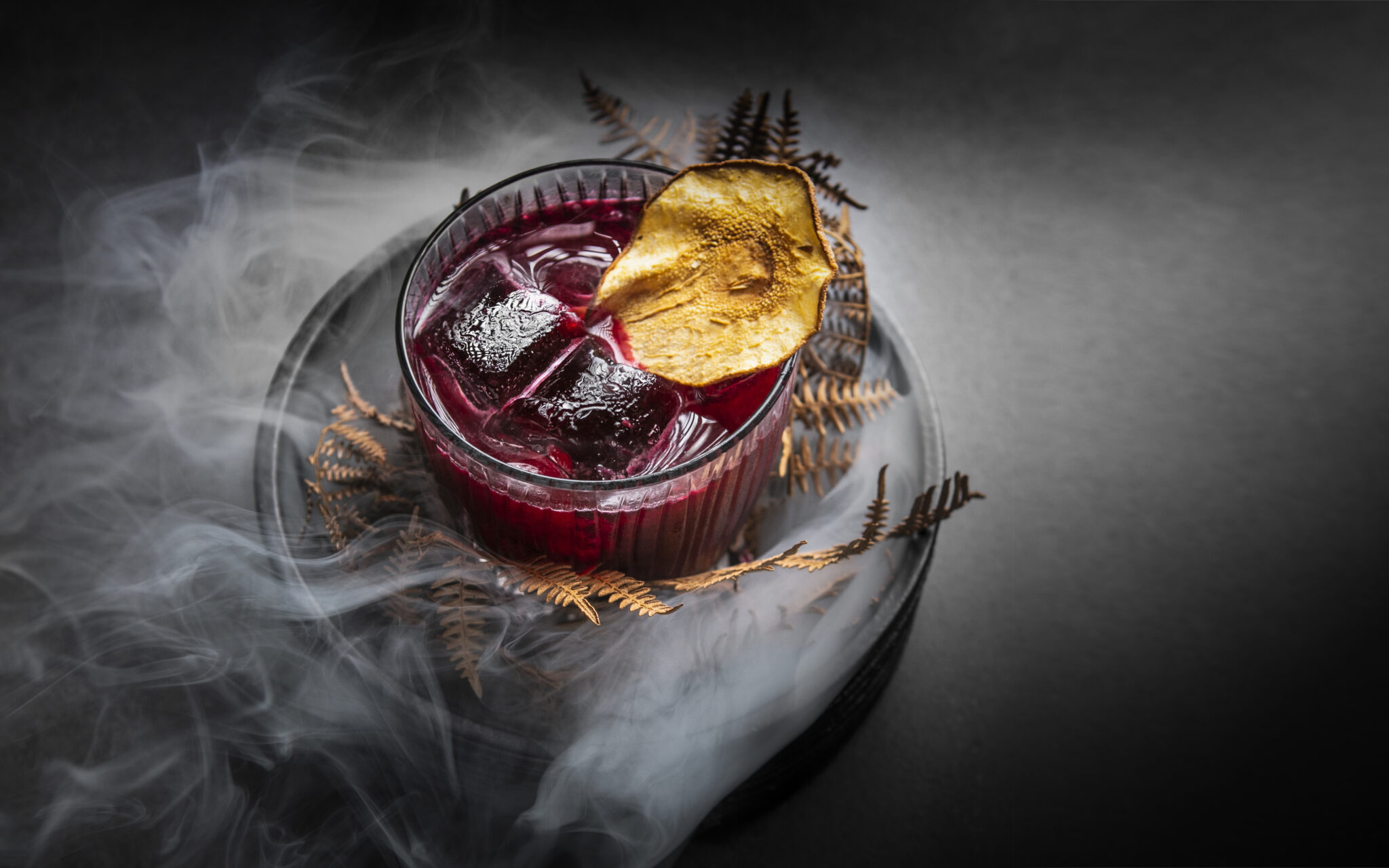In the high-end dining scene, sustainability is now more than a buzzword – it has become an ethos built into the fabric of a new dining venue, with budding restaurateurs and top chefs alike keen to limit waste and make the most of what’s local and seasonal. The world’s top chefs and restaurateurs understand that making a restaurant greener can be fun by finding innovative ways to channel sustainable power sources or out-of-the-box ways to use food waste in everything from biofuel to sauces and cordials.



Fyn, Cape Town
Fyn won a Flor de Caña Award for sustainability in the World’s 50 Best Restaurants awards and its menu proves why. With a name inspired by the country’s national fynbos flower (pronounced “Fayn”), Peter Tempelhoff’s restaurant employs hyper-local ingredients and uses Japanese techniques to make delicate creations. The team uses foraged local kelp, sea lettuce, and dune spinach. They also partner with the country’s most ethical producers and fishermen for meat and fish. More than half the menu is vegetarian or vegan-friendly and staff is trained in foraging and careful water management to avoid waste.
Saint Peter, Sydney
Josh Niland is the force behind this Sydney destination restaurant. His technique for sustainable fine dining is using available and plentiful fish (working carefully with local fishermen) and considering each fish’s shelf life to serve them at the perfect time, minimizing waste. Like Spain’s Ángel León, Niland makes use of the offal or less-loved parts of the fish, from crispy skin crackers to fish-liver pates, with bones used to make stock and “fish-eye chips,” a signature snack. The trendy, modern restaurant has exposed brick walls and a long marble counter, with plenty of exciting Australian wines on the menu.
nôl, Tokyo
This moodily-lit, chef’s table style restaurant was awarded the Michelin Green Star, taking Tokyo’s Green Star restaurants to 11 ‒ the most sustainable fine dining restaurants in a single city. Chef Tatsuya Noda refers to the dining room as a “kitchen space”, creating dishes passed down through his family, such as his grandmother’s home pickles and his mother’s roasted rice, for just a small group of diners. Noda’s “Garbage Soup” was singled out by Michelin as an exceptional waste-preventing dish; another low-waste initiative includes creating dishes from sturgeon fish, which are usually discarded after their caviar is removed.
Aponiente, Cadiz, Spain
Perhaps the most sustainable restaurant in the world is Aponiente. At this waterside spot in southwestern Spain, chef Ángel León is on a mission to showcase the marine ingredients we don’t typically see on a Michelin-level plate. Abundantly available fish like mackerel and hake crop up on his menus. Also making an appearance are sea urchin, tuna milt, deep sea algae, and sardine scales ‒ plus inventive moments like “sea bacon” made from thinly sliced sea bass. It’s an approach that’s earned him three Michelin stars and the 2022 Flor de Caña award for sustainable fine dining. Set inside an old tidal mill with a newer, wow-factor building attached, this is a real sensory experience.
Harbor House Inn, California
Perched on the California coastline of Mendocino, Harbor House is a beacon of sustainable American cooking. Chef Matthew Kammerer was awarded a Michelin Green star in 2020 while holding a rarefied two stars from the foodie guide. 90% of his ingredients come from local sources, including their own cattle ranch and kitchen garden. Porcini mushrooms are foraged from nearby woodlands and lichen from the clifftops, and the building itself is 100% powered by sustainable energy, including solar and geothermal. Little details make it charming such as fryer oil turned into candles for the tables, for example. Even more soul-soothing is the wild sea view from the classic wood-paneled dining room.
Restaurante Manu, Curitiba, Brazil
This exciting destination venue in the southern Brazilian state of Paraná won the Most Sustainable Restaurant award at Latin America’s 50 Best Restaurants awards. An impressive 80% of its suppliers come from less than a 200-mile radius, while the chefs actively connect with family farming businesses and smallholdings to support the local community. They believe in biodiversity, nurturing local species and even keeping their own beehives. Curious combinations might include seared fish with bacon and caramel, or lamb with seafood and custard apple. And, the team feeds the homeless, distributing 400 healthy meals per week to unhoused residents in Curitiba.



